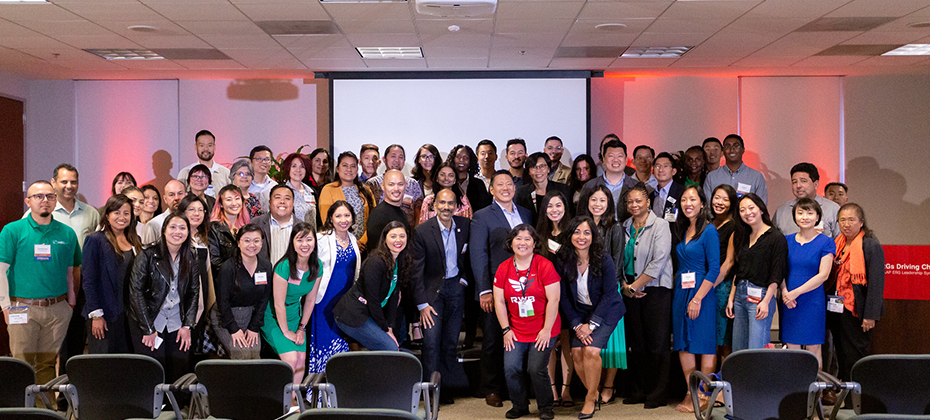News
What’s happening in our industry and what we’re doing

Veterans are an integral part of our freedom but did you also know that veterans are very successful small business owners? Veteran businesses can have a material economic impact in the regions where they are located. According to our Experian Veterans Study released this week, veterans are running strong businesses and veteran owned businesses have been consistently less risky overall when compared to non-veteran owned businesses for the past five years. The report also found that veterans have better consumer and commercial credit scores than non-veteran businesses. Veterans tend to own and operate businesses in more labor-intensive industries such as construction, manufacturing, wholesale trade and transportation. This may indicate that veteran business owners take the discipline and skills learned during their service and apply them in business as they create successful companies and drive significant economic impact. They also employ more individuals, which may be a result of the industry types of businesses they own such as construction and manufacturing. Our study showed that veterans across the country, are mostly well educated on credit and how to use it to grow their business. That engagement is important as it can have a positive impact on the economy through the creation of jobs. Veteran businesses also tend to have a lower probability of failure, a lower risk of serious delinquency within the next year and produce higher annual sales. Another interesting finding was that veteran businesses have better longevity and sustainability as inferred from their commercial credit when compared to non-veteran owned businesses. Overall across industries, veterans have a 67% longer credit history. Veteran business owners also have deep credit files with approximately 77% more tradelines overall. From a capital standpoint, veterans on average have approximately 192% more capital funding than non-veteran business owners. Veteran owned businesses touch a large network of business relationships as they tend to hire more employees, have more business to business relationships and utilize more commercial credit. This network drives positive economic impact through things like payroll, taxes, and vendor and supplier engagement. Entrepreneurship among U.S. veterans has been in decline since the late 70’s, but veteran business owners remain an important credit-successful source of job creation for our economy. There are countless ways we can thank our veterans for their service, another way to thank them is by supporting their businesses in our communities. Credit suppliers should continue to promote and bolster veteran business owners as a means of putting money to work in low risk economically influential businesses.

Retailers are already starting to display their Christmas decorations in stores and it’s only early November. Some might think they are putting the cart ahead of the horse, but as I see this happening, I’m reminded of the quote by the New York Yankee’s Yogi Berra who famously said, “It gets late early out there.” It may never be too early to get ready for the next big thing, especially when what’s coming might set the course for years to come. As 2019 comes to an end and we prepare for the excitement and challenges of a new decade, the same can be true for all of us working in the lending and credit space, especially when it comes to how we will approach the use of alternative data in the next decade. Over the last year, alternative data has been a hot topic of discussion. In fact if you typed “alternative data and credit” into a Google search today you would get more than 200 million results. That’s a lot of conversations, but while nearly everyone seems to be talking about alternative data, we may not have a clear view of how alternative data will be used in the credit economy. How we approach the use of alternative data in the coming decade is going to be one of the most important decisions the lending industry makes. Inaction is not an option, and the time for testing new approaches is starting to run out – like Yogi said, it’s getting late early. And here’s why: millennials. We already know that millennials tend to make up a significant percentage of consumers with so-called “thin-file” credit reports. They “grew up” during the Great Recession and that has had a profound impact on their financial behavior. Unlike their parents, they tend to have only one or two credit cards, they keep a majority of their savings in cash and, in general, they distrust financial institutions. However, they currently account for more than 21 percent of discretionary spend in the U.S. economy, and that percentage is going to expand exponentially in the coming decade. The recession fundamentally changed how lending happens, resulting in more regulation and a snowball effect of other economic challenges. As a result, millennials must work harder to catch up financially and are putting off major life milestones that past generations have historically done earlier in life, such as home ownership. They more often choose to rent and, while they pay their bills, rent and other factors such as utility and phone bill payments are traditionally not calculated in credit scores, ultimately leaving this generation thin-filed or worse, credit invisible. This is not a sustainable scenario as we enter the next decade. One of the biggest market dynamics we can expect to see over the next decade is consumer control. Consumers, especially millennials, want to be in the driver’s seat of their “credit journey” and play an active role in improving their financial situations. We are seeing a greater openness to providing data, which in turn enables lenders to make more informed decisions. This change is disrupting the status quo and bringing new, innovative solutions to the table. At Experian we have been testing how advanced analytics and machine learning can help accelerate the use of alternative data in credit and lending decisions. And we continue to work to make the process of analyzing this data as simple as possible, making it available to all lenders in all verticals. To help credit invisible and thin-file consumers gain access to fair and affordable credit, we’ve also recently announced Experian Lift, a new suite of credit score products that combines exclusive traditional credit, alternative credit and trended data assets to create a more holistic picture of consumer creditworthiness that will be available to lenders in early 2020. This new Experian credit score may improve access to credit for more than 40 million credit invisibles. There are more than 100 million consumers who are restricted by the traditional scoring methods used today. Experian Lift is another step in our commitment to helping improve financial health of consumers everywhere and empowers lenders to identify consumers who may otherwise be excluded from the traditional credit ecosystem. This isn’t just a trend in the United States. Brazil is using positive data to help drive financial inclusion, as are other around the world. Like I said, it’s getting late early. Things are moving fast. Already we are seeing technology companies playing a bigger role in the push for alternative data – often powered by fintech startups. At the same time there also has been a strong uptick in tech companies entering the banking space. Have you signed up for your Apple credit card yet? It will take all of 15 seconds to apply, and that’s expected to continue over the next decade. All of this is changing how the lending and credit industry must approach decision making, while also creating real-time frictionless experiences that empower the consumer. We saw this with the launch of Experian Boost earlier this year. The results speak for themselves: hundreds of thousands of previously thin-filed consumers have seen their credit scores instantly increase. We have also empowered millions of consumers to get more control of their credit by using Experian Boost to contribute new, positive phone, cable and utility payment histories. Through Experian Boost, we’re empowering consumers to play an active role in building their credit histories. And, with Experian Lift, we’re empowering lenders to identify consumers who may otherwise be excluded from the traditional credit ecosystem. That’s game changing. Disruptions like Experian Boost and newly announced Experian Lift are going to define the coming decade in credit and lending. Our industry needs to be ready because while it may seem early, it’s actually getting late.

At Experian we’re committed to creating a culture of continuous innovation, from the way we work to the solutions we create. This commitment has helped us create a workplace where our teams across the world have a desire to help change the lives of millions for the better. Justin Hastings, former Chief Human Resources Officer for Experian North America, recently wrote an article for the Forbes Human Resources Council which highlights the importance of creating an inclusive environment in the workplace -- and demonstrates how innovation, developing new products and services, and providing value are all crucial to a companies’ success. The article, “Deliver Innovation By Embracing Inclusion,” explores what it means to build a culture of innovation, and how to ensure employees feel comfortable bringing their different backgrounds and ideas to their role every day. This is the type of innovative culture we’re building at Experian, which celebrates these differences and works to make employees feel valued and empowered to be innovative and productive. Another concept Justin discusses in this article is “innovating to grow.” It’s important to make employees feel connected to their organization and involved in the creation of new products and services. This has a tremendous positive impact with employees providing valuable feedback, and also creating advocacy among team members. For example when developing Experian Boost, which has helped millions of people raise their credit scores, we first beta-tested and shared the innovation internally and were able to garner valuable feedback and support from employees. As a result, we’ve seen tremendous success since the launch of Experian Boost earlier this year. At Experian we truly believe that inclusion is the key to creating a culture of innovation. You can read the full article here.

For the second year in a row, Experian Costa Rica has achieved recertification from Great Places to Work in the Central America region. The honor recognizes the inclusive workplace culture that Experian Costa Rica employees and leaders have created, making it a dynamic environment for innovation and high productivity. “Getting re-certified as a Great Place to Work provides and enormous sense of pride. As an organization it validates all the efforts we make to ensure a strong healthy employee culture and as a leader it allows us to come to work knowing that we have a culture that employees enjoy working in,” said Adrian Sibaja, Director of Service Delivery for Experian Costa Rica and Chile. Experian Costa Rica is one of four Global Delivery Centers, strategically located centers of operational excellence that support Experian’s regions. The office is home to nearly 1,000 employees across different business units. This honor reinforces the workplace culture we’re fostering, which our employees are happy to brag about in confidential surveys. Costa Rica leadership is always looking for ways to make the employee culture even better. That’s why recognizing employee accomplishments and encouraging partnership between business units are among their top priorities. Congratulations to our Costa Rica colleagues!
At Experian, we know a credit score is the gatekeeper to better financial opportunities, which is why we are committed to developing products and services that support consumers in their financial journey. Six months ago, we hit a major milestone in bringing this commitment to life with the launch of Experian Boost. This innovative tool gave consumers the ability to add positive telecom and utility payment history directly to their credit file for an opportunity to instantly increase their credit scores for the first time. When we launched Experian Boost, we knew there were more than 100 million Americans who didn’t have fair access to credit because of a limited credit history or a subprime score. We also knew these consumers were often forced to pay higher interest rates and fees for financial services. Today, as we look at our Experian Boost results, we know we’re helping to change that. To date, for consumers who’ve used Experian Boost, we’ve seen: More than 11 million cumulative FICO Score points boosted FICO Scores increased for 2 out of 3 users with an average increase of more than 10 points Of those who boosted their credit scores, an average of 13% moved up a credit tier and of those in the “poor” credit tier, 24% moved to a “fair” tier Approximately 90% of “thin” file consumers who improve their credit scores saw an average increase of 19 points California, Texas and Florida rank 1-2-3 in number of consumers who have boosted their scores and total points boosted To say we’re pleased with the positive feedback we’ve received about Experian Boost to date would be an understatement, but we’re not surprised. For years, lenders have been seeking new means to identify creditworthy consumers. At the same time, consumers have been asking for more control of their data and credit where credit is due. This is exactly what we’re providing with Experian Boost. We’re helping to level the playing field and reward positive behavior and it’s not going unnoticed. Members of the credit counseling and advocacy community have reached out with excitement about Experian Boost. This solution is giving many of their clients a tangible way to impact their credit scores and improve their financial lives. Improving consumer financial health is a core part of our sense of purpose and we’re just getting started. We’ll continue to enhance Experian Boost and develop new products and solutions to improve financial access to for more consumers. To find out more about the Experian Boost, please visit www.experian.com/boost.

As a member of the Forbes Technology Council, I get to publish articles on some of the latest technology trends and best practices. A recent piece, entitled “Are we comfortable with machines having the final say?”, deals with the sensitive issue of decisions being made by complex algorithms and how it impacts all areas of our lives. The article takes a closer look at high-impact decisions, such as loan determinations and health diagnosis, where the lack of understanding how algorithms may be used is becoming of increasing concern. In this context, it raises the importance of Explainable AI (XAI). This is a concept where technology and science are being used to explain how an algorithm or machine reaches a decision and tries to do this in a way that is transparent to users. However, this approach is still being tested and is only used in certain limited circumstances. As humans, we are taught to explain our decisions but we all know how difficult it is - and science has repeatedly shown how easily biased we are. XAI still has some way to go, but we can inspect, test and pick machines apart in a way we can never do with the human mind. So perhaps one day we will find a way to truly explain a machine’s decision. Whether that would make us comfortable with the machines having the final say, is still to be seen. Check out the full article here.

We are delighted to announce our investment in bonify, a German fintech start-up dedicated to giving consumers better insights into their creditworthiness. bonify gives its 500,000 customers easy access to their creditworthiness and financial data, offering them a number of financial management tools to help analyse and optimise their financial situation. At Experian, we believe very deeply in the power of data to help improve people’s lives. That’s why we’re so excited by bonify’s continued goal to improve its users’ financial lives, and the steps it is taking to help people in Germany understand and benefit from their financial information. We are delighted to join a number of investors in supporting the growth of this innovative start-up. Charles Butterworth, Managing Director Experian UK, Ireland and EMEA, said: "We are excited by the way bonify is helping people in Germany understand, engage with and improve their credit scores. We look forward to supporting the team as an investor and partner in their future growth.“ Founder and CEO of bonify, Dr. Gamal Moukabary, said: “Experian's investment shows that we are on the right track. It rewards our achievements and our unique value proposition. Experian is an ideal investor and partner for us to support the next growth phase. Our goal is to expand our operations into other European countries.” Manuel Silva Martínez, Partner and Head of Investments, Santander InnoVentures, added: “We are delighted to welcome Experian Ventures to bonify. Experian will add tremendous value and technical expertise to bonify’s product roadmap. We are thrilled to support bonify as we accelerate growth and help more and more people across Germany and Europe with taking control of their finances in a sound and responsible way.

At Experian, we believe that the power of data can be used in everyday life to help consumers worldwide. And we deliver against that mission every day. As the amount of data in the world continues to grow exponentially, the opportunity to harness the power of that information to improve the lives of people around the world grows with it. Experian is uniquely placed to fulfill that mission - we are empowering both individuals and businesses around the globe by putting them in control of their data, and their futures. Our latest Corporate Responsibility Report highlights the very real, tangible impact our company has achieved, enabling more than 20 million people to access credit and other essential services. Through our core products and services – and the introduction of new alternative data sources such as utility and rental data – Experian is adding value to societies around the world, increasing choice, transparency, and competitiveness in economies, and improving financial inclusion, helping those access mainstream financial products, who have previously been unable to. In South Africa, we launched The GeleZAR app. Developed through our social innovation programme, the app uses mobile data to enable unbanked people to improve their credit profile, helping them to access they credit they need to build their businesses and achieve their goals. In Brazil, we’re reaching those living in some of the remote parts of the vast country who don’t have access to our online services. Our Serasa Itinerant truck and boat reached more than 100,000 in 44 countries in its first year, helping consumers to view their credit scores for the very first time and learn how to manage their file, build their history and manage their debts successfully. In the USA, we introduced what we believe is a significant game changer to the way millions manage their finances. Experian Boost allows people, for the very first time, to add positive payment history directly to their file to improve their score. Since launch in March, more than 600,000 customers have boosted their score, taking control of their data in a way that has never been done before. We’re at the forefront of the battle against identity fraud. Our fraud prevention and data capabilities help both clients and consumers keep their data safe. A new service in the USA helps parents protect their children from identity theft and we’re helping older people in the UK to recognise and tackle fraud. Our roots are in providing credit information and assessing lending risks. But we are much more than that. We are creating new opportunities by connecting businesses and consumers in new ways – and exploring how data can be used to tackle societal challenges around the globe. In doing so Experian is supporting businesses grow, people prosper and communities thrive, and helping shape a better tomorrow.

As part of Experian’s commitment to the value of Employee Resource Groups (ERG), we recently hosted the National Association of Asian American Professionals (NAAAP) ERG Leadership Symposium, ERGs Driving Change at our Costa Mesa headquarters. ERGs are a proven strategy for organizations to advance a diverse and inclusive company culture. At Experian, we believe the culture of inclusion also cultivates and advances innovation with the added diversity perspective that strengthens the community of professionals and ideas within the company. We were proud to host the 13th ERG one-day training program that was organized by the NAAAP to help companies and employees advance their ERG experience and learn how ERGs are change agents to enhance productivity and grow professional networks in the corporate setting. Speakers represented companies leading their industry, such as Bank of the West, Macy’s, Anheuser-Busch, Google, Facebook, UPS, Northrop Grumman, Boston Scientific, and many more, including Experian. The symposium this year featured numerous ERG thought leaders sharing their insights across a variety of sessions and panels, including; Best Practices in Demonstrating Value, Creating Connections through ERG Leadership, What’s Next Action Plans for Your ERG, among others. Caption: Hiq Lee, President, Business Information Services for Experian, shared insights as a panelist for The Crucial Executive Role in Driving Change session. She was joined by Judy Ting, SVP, Pacific Rim Region Manager, Bank of the West, and DeAnne Aussem, Managing Director & Founder of U.S. Leadership Coaching Center of Excellence, PricewaterhouseCoopers, LLC. The panel was moderated by Farzana Nayani, NAAAP ERG Architect. All speakers provided valuable takeaways for the professionals in attendance to motivate their organizations to positively impact their company with the diversity amongst its workforce and implement strategies to leverage the power of inclusion. Specifically, the hundred-plus attendees learned more about how Employee Resource Groups and Business Resource Groups are change agents for diversity, inclusion, engagement, productivity, and connection-building within organizational settings. Justin Hastings, former Chief Human Resources Officer for Experian North America, welcomed the ERG Leadership Symposium attendees with his introductory remarks, as he shared Experian’s perspective on inclusion leading to innovation. Therefore, we asked him some questions to share his insights with us on Experian’s ERGs. 1. How is Experian creating a better tomorrow? Hastings: The consumer is at the heart of everything we do. Our product innovation is geared towards giving consumers more control over how their data can enrich their lives. Experian Boost is a perfect example of this coming to life. Inclusion underpins our ability to innovate. The more we encourage a culture where everyone’s creativity is valued, the more we are able to innovate for consumers. Our ERGs play an important role in promoting diversity, and creating an environment where all our Experian people can bring their whole selves to work and be creative. 2. What role does The Power of YOU have in Employee Resource Groups? Hastings: We created a workplace environment where everyone is comfortable bringing their whole self to work, regardless of differences or backgrounds. We call this The Power of YOU, which creates an environment for employees to be their true selves. We advance our company culture by not only respecting the differences amongst Experian colleagues, but actively celebrating them with and through our ERGs. 3. What impact does the Employee Resource Groups have on Experian? Hastings: At Experian, inclusion is vital to the success of the company. Our ERGs provide us with a platform to be a more innovative business. Our ERGs now have around 1,000 employees actively involved across the eight current groups. They have helped create greater understanding of different cultures that are represented in our company, and they have also underpinned our recruiting efforts across diverse talent pools. This has helped us to keep evolving our employee base to be increasingly representative of the communities in which we operate, and the consumers we ultimately serve. Learn more about Experian’s Employee Resource Groups by visiting: https://www.experian.com/corporate/power-of-you.html Learn more about the National Association of Asian American Professionals (NAAAP) by visiting: https://www.naaap.org/ All photos taken by Nhan T. Nguyen.